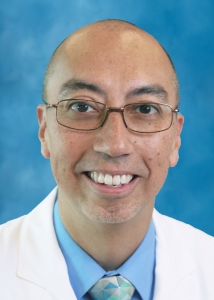By MARK WEISMAN, MD

Stress can take a toll on any of us, and we are certainly living in stressful times.
There’s a lot to worry about, including exposure to a highly infectious virus, loss of a job or income, and of course the ominous threat of a society sans toilet paper! There are significant changes in our lifestyles with social distancing, limitations on activities and social interactions, and for the parents out there, taking on a new career in homeschooling. It’s enough to wear down even the more resilient of us. But what about those who already suffer from depression or anxiety? What can we expect and what can we do about it?
If you already suffer from a depressive or anxiety disorder, you’re in good company. On average around 7%-8% of American adults suffer a major depressive episode each year and with anxiety disorders, nearly 20% of Americans suffer. So look around your neighborhood or workplace and take some solace in the fact that you are most definitely NOT the only one struggling with this. And while it is true that stressful times can increase your chances of relapse or a worsening of symptoms, it’s also true that you have more experience dealing with these symptoms than most of us. You may be far more resilient than you think.
A lot of great advice has already been given. For example, try not to focus so much on the negative and limit the mental space you give to COVID-19. Take care of yourself, try to eat and sleep well, meditate or pray. Let go of the things you cannot control and work on the ones you can. For those with pre-existing depressive or anxiety disorders, here are some additional recommendations.
First, if you are already in treatment, do your best to continue that treatment. Many studies indicate that it’s much easier to maintain than to rebuild your mental health. This may require some flexibility with how you interact with providers (e.g. video or telephone appointments). If you have never been in treatment and have tried to “tough it out,” now might be a good time to start getting the treatment you need. And if you are prescribed medications, keep taking them and make sure you have refills. If you need to switch to mail order or 90-day supplies or if you think you might need a medication adjustment, talk with your provider.
Second, don’t reinvent the wheel if you don’t have to. If you have faced depression or anxiety and managed to get better, think back on what worked before. Medications and psychotherapy may have helped, but more than likely, YOU did a lot of work to get better. Maybe you started taking better care of yourself. Perhaps you kept a journal and tracked your thoughts and behaviors, challenging distortions and replacing negative thoughts. Possibly you reached out to friends or family or made new connections with new people or new interests. This may be hard to do right now, but you can still call an old friend or loved one, take some time to enjoy a favorite book or movie, or catch up on some projects around the house or try that new recipe. Whatever you did before, try to apply the lessons you’ve already learned in coping with depression and anxiety and cash in on that experience.
Lastly, if nothing seems to be working and you find your symptoms getting worse, reach out for help. Depression and anxiety can leave you feeling isolated and that can make your symptoms even worse. If you have a mental health provider, make an appointment. If you need one, call to schedule. You can also reach out to the national crisis line (800-273-TALK). You don’t have to be at rock bottom to use this service. But if you do feel your symptoms are severe and your safety is a concern, call this line, 911, or go to the emergency room. You know yourself and you are your best advocate so get the help you need. And above all, you hopefully know from your prior experiences that no matter how bad things can get, they can always get better.
This too shall pass.

About the Author
Dr. Weisman is a Psychiatrist at our Grasslands Campus and has practiced Psychiatry for over 5 years, specializing in helping patients with a variety of mental and behavioral health disorders including anxiety, post-traumatic stress disorder and dementias. He also is specially trained to provide Transcranial Magnetic Stimulation (TMS), a newer treatment for those with depression.
For more information about Behavioral Health
and Wellness at Lakeland Regional Health, click here.
To make an appointment with Dr. Weisman, please call 863.687.1222.

